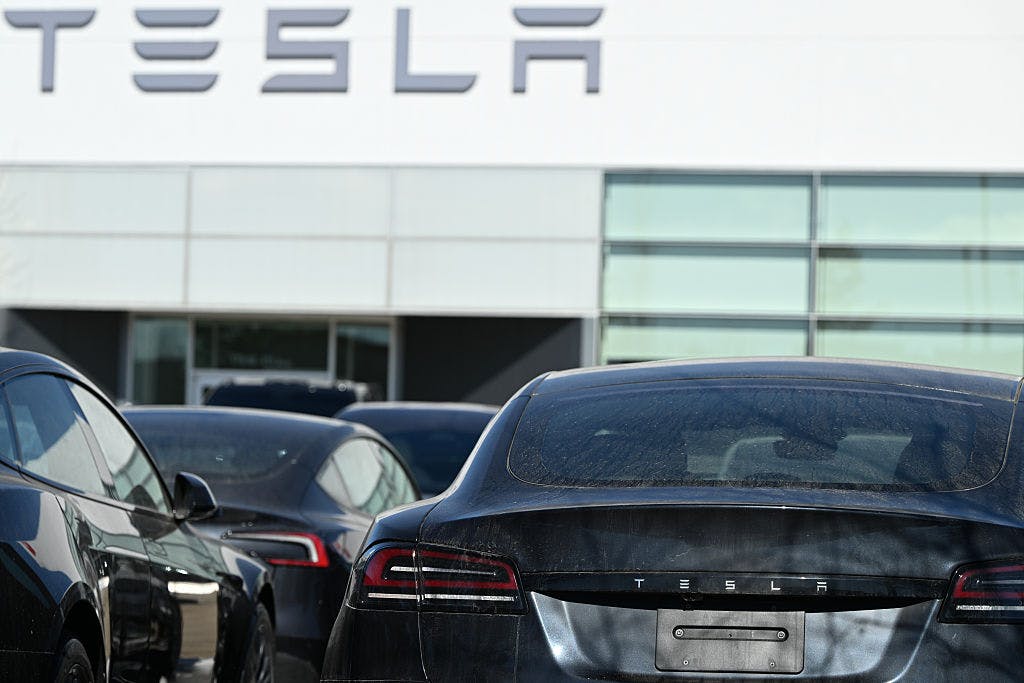Consumers tried to unload a record number of Teslas in March
Tesla’s used US inventory grew faster than any other automaker’s.
The number of used Tesla vehicles listed for sale on marketplace Autotrader.com surged in March. During the final week of the month — the same week hundreds of “Tesla Takedown” protests were held across the country — an average of more than 13,000 used Teslas were listed for sale. That’s the most ever on record and up 67% from the same week a year earlier, according to new data provided by Autotrader parent company Cox Automotive.
Tesla is a smaller automaker than some of its competitors, but even on an absolute basis the rise in vehicles listed for sale was striking, with about 5,300 more for sale than a year earlier. Supply of used all-electric competitors Rivian and Lucid was down, but is always relatively low.
Data from analytics firm YouGov from the beginning of March showed that Tesla’s popularity among Americans had shrunk to record lows, as its CEO meddled in American politics while facing increased competition and dropping sales. The brand has become such a lightening rod for political controversy and activism that the FBI in March launched a task force to “crack down on violent Tesla attacks.” While many are aware of the brand, that hasn’t translated into purchase interest.
More recent data from Gallup showed that interest in electric vehicles generally has shrunk the most among the people most likely to buy them in the first place. However, that data didn’t specify how Tesla might be affecting people’s interest in EVs overall.
